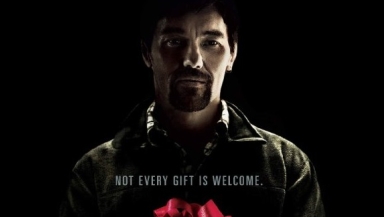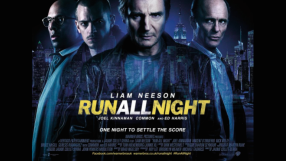
Hidden among this summer's cinematic triumphs and turkeys is one of 2015's most surprisingly brilliant movies. Coming from the production house that brought us the dubious delights of Insidious, Sinister and The Purge, you might be forgiven for assuming that The Gift is more gruesome, shock-laden tripe. Instead it's a taut, brilliantly-written thriller which makes use of some great central performances to say some profound and theologically-interesting things about human nature.
Plot spoilers for The Gift really would be criminal, so I'll keep the explanation brief: a successful professional couple (Rebecca Hall and Jason Bateman) move from Chicago to Los Angeles with his job. Bateman's character Simon grew up close by, and thus soon runs into an old school acquaintance, Gordo, played by the phenomenal Joel Edgerton, who also wrote and directed the movie. Gordo wants to be friends, despite suggestions that *something* happened between them when they were kids, but after Gordo's social awkwardness begins to irk Simon, he's asked to stay away.
What follows is not, as the trailer might infer, a classic home invasion movie or blood-soaked horror. Instead there's an unfolding story which is at the same time brilliantly straight-forward and morally complex. Gordo is a Bible-quoting believer in Jesus' Golden Rule ('do to others as you would have them do to you', Luke 6:31), but when he's rejected by Simon he begins to subvert it in the most disturbing way. The film's final sequence, which lives with you long after you leave the cinema, is one of the most memorable and devastating in recent memory.
Somewhat surprisingly, the film is littered with Biblical ideas. Early on, Gordo talks about how sometimes the best things grow out of something bad; that facing personal trials can be the 'gift' of the film's title. It's an unexpected echo of James 1: 2-4, spoken by a character who has clearly experienced great difficulty. Meanwhile, the human response to being confronted with our own sin, and the opportunity to repent of it, is at the very heart of the story. The film's worldview offers hope to those who can humble themselves to ask forgiveness, and two possible consequences to our engagement with the things we've done wrong. Bad things can be a gift, if they lead us to that kind of self-reflection and improvement.
This summer's film releases have been a mixed-bag so far, from the thrills of Mission Impossible 5 to the spills of the utterly-awful Fantastic Four. Bad language warning notwithstanding, The Gift deserves to be seen as widely as the former, not only as a great piece of film-making, but as a piece of theologically-minded social commentary. Sometimes popular culture offers Christians a ready-made discussion starter to help us talk about the ideas of the gospel with our friends, and it rarely comes as effortlessly as this.
Martin Saunders is a Contributing Editor for Christian Today and the Deputy CEO of Youthscape. You can follow him on Twitter: @martinsaunders


















